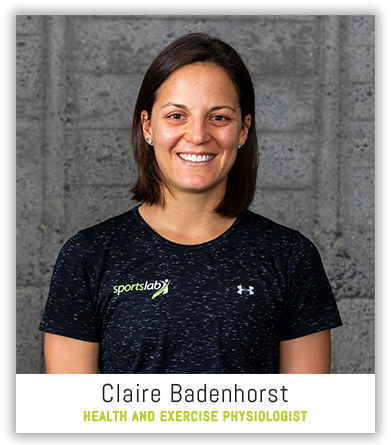Redefining Health: It is Time We Challenged Your Thoughts on Health
Have you heard of the concept of the athlete biological passport? Well if you haven’t it is how the anti-doping agencies monitor athletes throughout their career and detect in their blood and urine if they are ‘clean’ or if they have used banned substances. The concept is quite simple in theory, over an athlete’s athletic career regular biological samples (blood and urine) are collected and then can be tested for a banned substance or they can be analysed for drastic and abnormal changes in hormones and other indicators in the blood. The passport and regular tracking is an interesting concept, as compared to the standard blood test which compares your results to a diseased population, the biological passport allows the doping agencies to track any changes that are ‘out of the ordinary’ for that person. In essence, the passport is an attempt to account for the individual and their physiology. While the overarching aim is to detect doping infringements, the uniqueness of the individual approach and not merely relying on the ranges on the standard blood form, makes this type of testing specific to each individual athlete.
Here is the question then: why is this only restricted to athletes to detect if they have cheated or not? In the current environment we are undergoing a very radical approach to health maintenance, with many of us in New Zealand being restricted to our homes, having to avoid relatives and people in the street and essentially staying within our personal bubble. There is no doubt that following this pandemic there will be drastic changes to how we work, view our health and what we may choose to prioritise. Now please humour me and let me discuss a possibility on how we can look at our health in the future.
Typically, when we go to the doctor or when we get a blood test done, the main purpose of this visit is to identify if we are sick or if we have any deficiencies. Up until now, and yes this is my opinion and feel free to have your own on this, science and medicine has been very treatment-focussed and reductionist, and that has possibly influenced people’s way in which they use medical service lines. Not many of us go into our doctor to check and see how our health is tracking when we feel good. To me, we have fallen into a habit of treating ourselves only once we end up in a situation where we need it (sick or injured). How many of us see our doctors while we are healthy, or use massage and physio treatments as a way to prevent injuries and maintain optimal functioning? The skills of our physios, massage therapists and podiatrists are exceptional and by only using them to treat injuries, you are not making full use of their knowledge – which expands into everyday life.
But after stating all of this, I would actually love to know how many people take a proactive and preventative approach to their health and well-being?
If I can now link this back to the athlete biological passport, is there the opportunity for us to use this concept of tracking our own biochemical indicators in the blood like cholesterol, blood sugar levels, cortisol (stress hormone), iron stores and then using this to help us improve our health and training ability? Can we use regular tracking to get an idea of what our physiology looks like and can we use this information to inform our training and nutritional choices in order to maintain our health. In some athletic settings, regular blood tests have been used to monitor athletes, allowing sport scientists to identify iron or vitamin deficiencies, inflammation and what is red blood cells functioning and status. Red blood cell functioning and status is a component that is crucial to our ability to transport oxygen around our body, and so is linked to our endurance performance. There is the possibility that we could use regular blood tests to assess the effectiveness of our training or nutritional strategies and we could use the information to determine if we need to adjust our nutritional intake and/or predict our ability to adapt to the next training/ exercise load.
The beauty of a system like this where a person chooses to have regular tests and monitors blood biomarkers means that the health and physiological tests will be completely specific and tailored to you! If you then aligned this with other measures (heart rate during rest and exercise, heart rate variability, movement patterns, readiness for exercise, fatigue rating, power, pace) used in training, you start to create a very individualistic approach that can be used to avoid injury and illness. Let me give you a few examples of this:
1. A high testosterone-to cortisol ratio (cortisol being our stress hormone) would indicate that you are able to build and maintain muscle and effectively recover and adapt to your training/exercise. If this was reversed and cortisol was higher, then potentially you are going to break down muscle and your body will need extra recovery from the training session, so you may have to have an easy or unload period.
2. If we are not fuelling properly for the training we are doing (i.e. we are not eating enough for large training loads), then we may end up in a state of low energy availability, where the remaining energy left from food is not enough to support normal functioning in the body, and we will see a decline in our thyroid hormones. Our thyroid hormones determine our metabolic rate (the energy our body uses at rest- like when we are sleeping), a reduction in their concentration is the body’s attempt to reset the metabolism to a lower level to match the food you are putting in. In that way the body attempts to drop the energy requirement when you are at rest, this means you can still exercise and you may perform normally, but you will notice that you may struggle to put on muscle mass, or you will take longer to recover after sessions.
3. Iron stores are strongly linked to your ability to transport oxygen around your body, a drop in these may reduce your ability to adapt to endurance training and may leave you feeling flat and tired, unable to concentrate at work and may increase your chances of getting sick.
4. Low vitamin D is linked to poor immune, muscle and bone health. If you have low levels you may find you get sick quite frequently, may struggle to recover from exercise sessions, struggle to put on muscle mass or may experience bone stress injuries.
5. If we are thinking about our nutrition, then possibly using serum carotenoids (the substance responsible for vegetable and fruit colouring) to assess fruit and vegetable intake and if they need to be increased or decreased to optimise recovery and adaptation is a good idea.
At this point I should probably highlight that how we set up a test is hugely important to interpreting it. Some blood tests may be prescribed at rest, while others may be after exercise and this can be used to assess your recovery from exercise and if you are in a fatigued state. We must also consider the time of day of the test, the individual (gender, age, sleep, psychological stress etc), posture of test, hydration status, fasting and timing of exercise before the testing session. For the best monitoring system, we need a carefully-integrated approach to the timing and selection of tests, and use the evidence from them to inform our decisions on nutritional, health and training strategies.
While I fully acknowledge that this all seems futuristic, we need to start thinking about how we can look at and monitor our health. Maybe getting one blood test a year and then assessing our ‘normal’ based on the ranges on a blood test form isn’t enough to understand what is actually normal and healthy for us as individuals. Maybe we need to consider that a preventative approach to maintaining health isn’t only about how you eat and how you exercise, but how you use medical services like your doctor, your physio, podiatrist, massage therapist to track and monitor how your body feels when it is healthy. In this way you are taking health into your own hands and taking proactive steps to maintain your health and well-being.
Here is the challenge for this ‘redefining health series’. Over these four blogs, we are going to challenge your attitude and behaviours towards health and hopefully convince you to take a more active preventative approach. Your health is your responsibility and we are here to equip you with the knowledge and skills you need to maximise it.
Every clinic needs a doctor, at Sports Lab, Claire is ours. Dr Claire Badenhorst is our physiologist (PhD Exercise Physiology, Academic at Massey University in Auckland) with research focus areas currently in female health, iron deficiency and endurance athletes. She readily aligns with the Sports Lab ethos in her emphasis on preventative healthcare.


